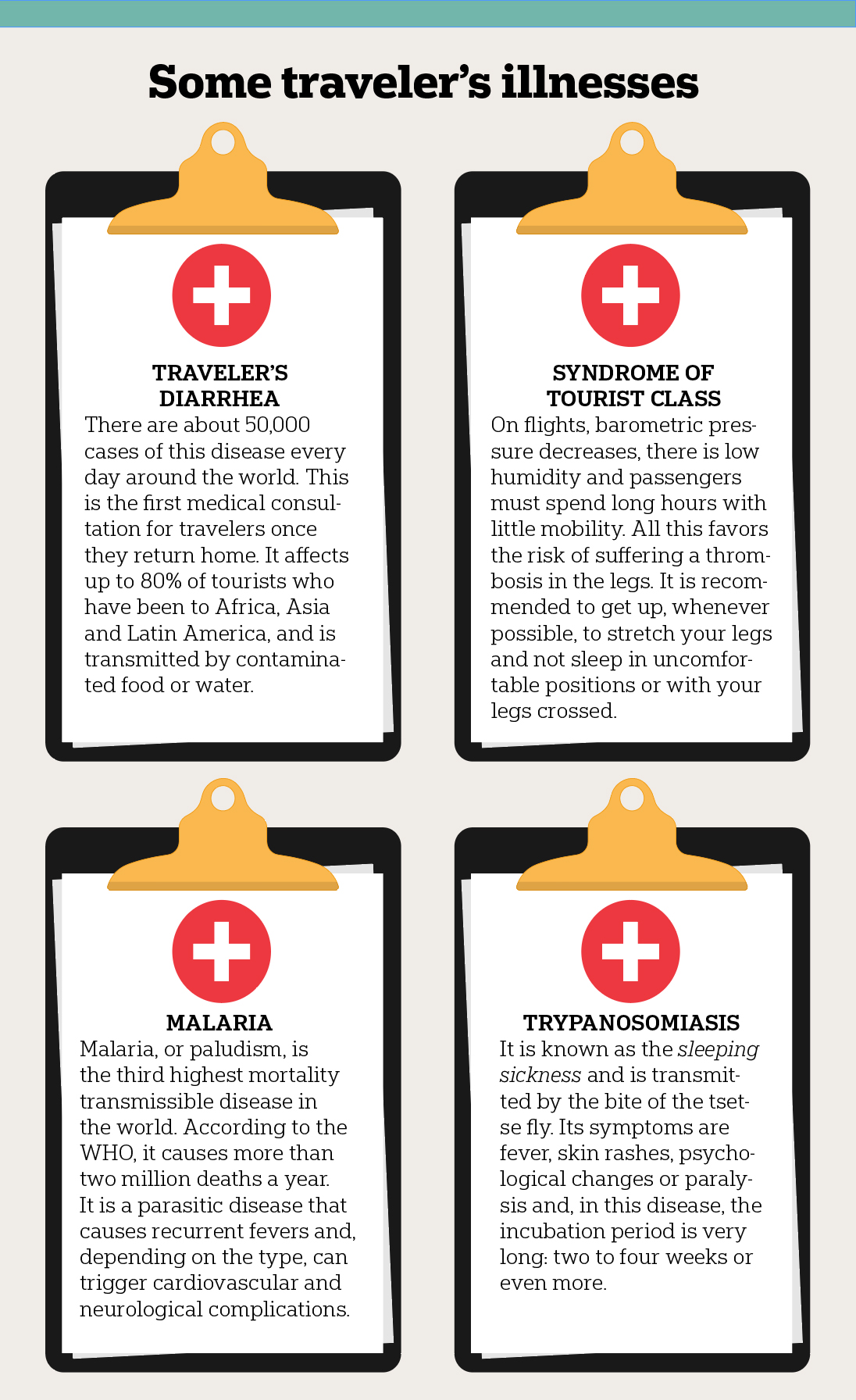
Once back, pay attention to the symptoms
Planning a trip well and taking the appropriate preventive measures can considerably reduce the risk of suffering from health problems. But it is not always enough. One in ten travelers who have visited a tropical country return with a health problem.
Beyond the so-called post-holiday depression, or minor problems such as a blister after long excursions or a punctual sting from a jellyfish, there are certain somewhat more serious health risks once the holidays have been enjoyed. As a general rule, with good planning and taking the corresponding measures during the trip, many health problems can be prevented. Especially those related to muscle pain, headaches, insect bites, dizziness, etc. Although it is not always possible and sometimes health problems can become more worrying. Depending, above all, on the destination and style of travel, the chances of returning home and having contracted some type of disease increase. They are what experts call imported diseases. In fact, one in ten travelers who visit a tropical country return with some health problem after the trip, according to statistics from the Spanish Society of Infectious Diseases and Clinical Microbiology. In this sense, the most common thing is that “diseases appear during the trip, or during the first days after returning from vacation,” explains Guillermo Mena Pinilla, a specialist in preventive medicine and public health and head of the Unidad de Medicina del Viajero (Travel Medicine Unit) at Hospital HLA Clínica Internacional Barcelona. However, he says that there are many diseases that “can show up after weeks, even months, back from the trip.” Malaria, rabies or several transmissible diseases of the digestive tract are examples of these pathologies that can manifest later.
In addition, it must be taken into account that travelers are much more susceptible to suffering at destination or importing diseases against which, unlike the local population in underdeveloped or tropical countries, they do not have immunity. If upon return, the person is unwell, you should also keep in mind the incubation periods of different infectious diseases. Each pathology has its own times and they must be known, although there are complex cases. For example, malaria has a short to long incubation period. It is very variable. It also happens with tuberculosis, which usually has a slow period, of more than 21 days, but which can also present exceptions and incubate many days before.
Medical examinations
For all of this reasons, it is important to carry out a medical examination if, after returning from a trip, you have fever, persistent diarrhea, vomiting, urinary disorders, skin diseases or genital infections. In fact, Guillermo Mena Pinilla adds that “in the face of any symptom of imported disease, you must go to the local medical services, specifying the destination that has been visited and the risks to which you have been exposed.” The specialist recalls that, on many occasions, these symptoms “are non-specific” and that, generally, they are usually fever, muscle pain, headache, tiredness or diarrhea. In case of doubt, he remarks, “it is important to always consult the health services.” Finally, this medical review is also recommended for people with chronic cardiovascular diseases, diabetes, respiratory problems, etc





